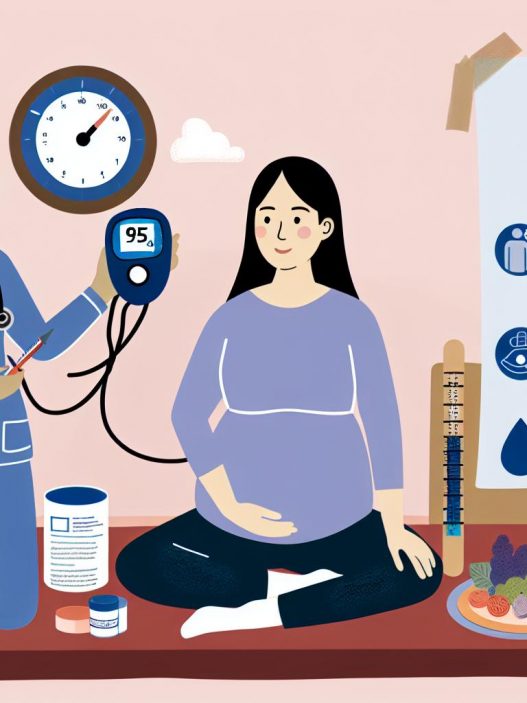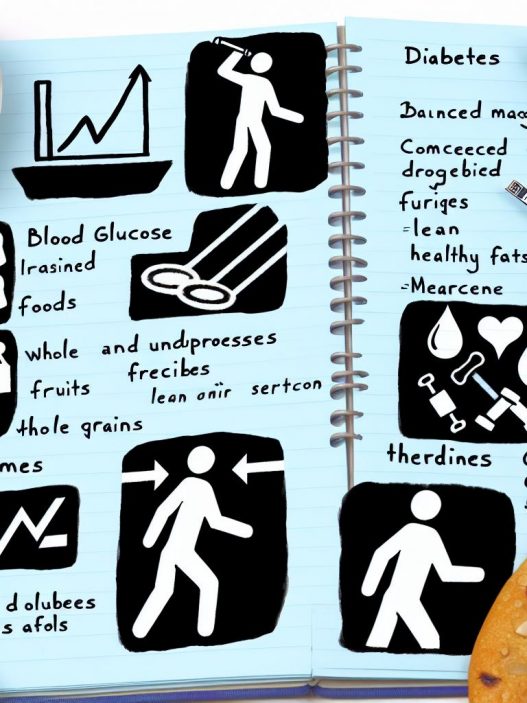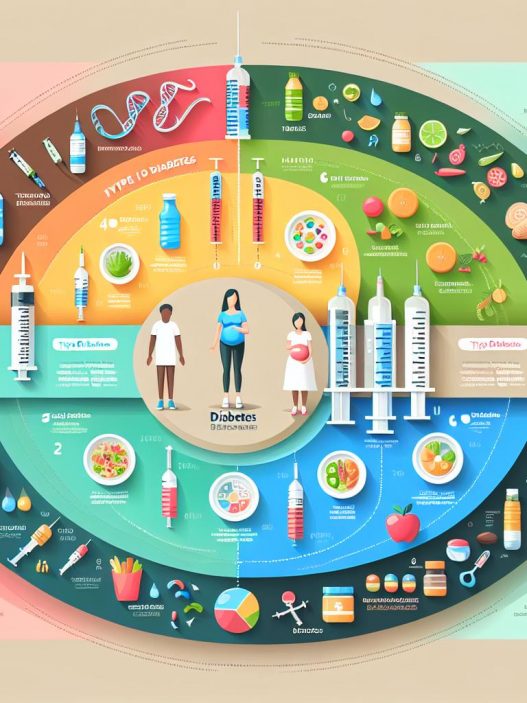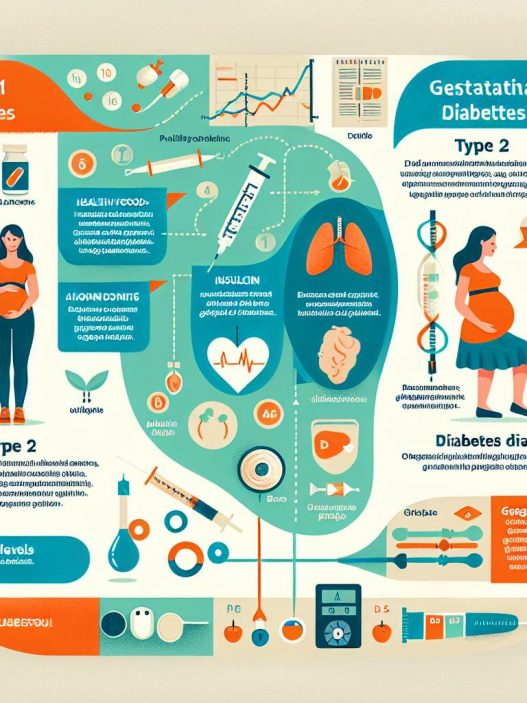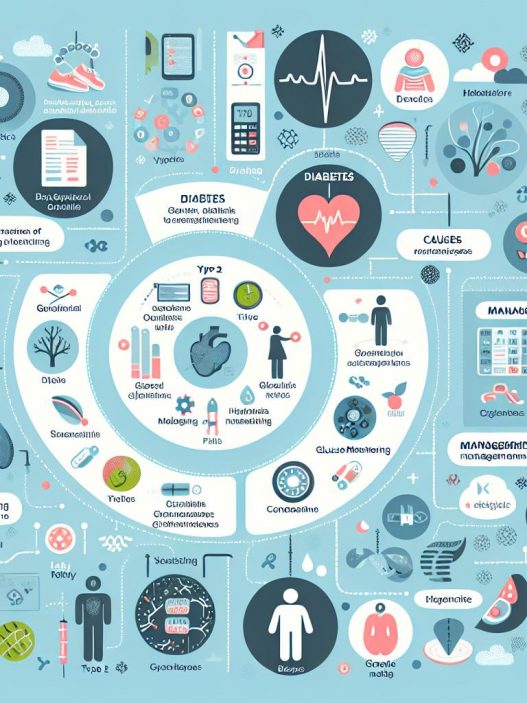# Mastering Type 1 Diabetes: Essential Tips for Healthy Living
Living with Type 1 diabetes can be a daunting challenge; however, with the right approach and information, managing the condition becomes more manageable. Individuals diagnosed with Type 1 diabetes must prioritize their health by understanding how to balance insulin therapy, diet, exercise, and lifestyle choices. This comprehensive guide will provide essential tips for maintaining a healthy and fulfilling life while mastering Type 1 diabetes.
Understanding Type 1 Diabetes and its Management
Type 1 diabetes is an autoimmune condition where the immune system attacks and destroys the insulin-producing beta cells in the pancreas. This results in little to no insulin production. Unlike Type 2 diabetes, Type 1 diabetes typically develops in children or young adults, but it can occur at any age. Effective management of this condition requires lifelong insulin therapy and a commitment to regular monitoring of blood glucose levels.
Monitoring blood glucose levels is paramount for individuals with Type 1 diabetes. They must learn how to use glucose meters or continuous glucose monitors (CGMs) to keep track of their levels throughout the day. Understanding insulin administration techniques, including different types of insulin and their onset, peak, and duration, is also crucial. Coupled with knowledge about carbohydrate counting and how different foods affect blood sugar levels, this foundational understanding allows individuals to take control of their diabetes management.
Regular follow-ups with healthcare professionals are essential to ensure effective diabetes management. Healthcare providers can offer guidance on insulin dosing, suggest medications, and provide resources for dietary and lifestyle changes. Participating in diabetes education programs can enhance one’s knowledge and skills and foster a supportive community for individuals living with the condition.
Crafting a Balanced Diet for Optimal Blood Sugar Control
Nutrition plays a vital role in managing Type 1 diabetes, and crafting a balanced diet is crucial for maintaining stable blood sugar levels. Individuals with this condition must focus on consuming a variety of whole foods, including fruits, vegetables, whole grains, lean proteins, and healthy fats. Carbohydrate counting is particularly beneficial, as it helps individuals understand how many carbs they are consuming and how it will affect their blood sugar levels.
In addition to carbohydrate counting, meal timing is essential for those living with Type 1 diabetes. It is important to have consistent meal times, allowing for better insulin management. Sticking to a schedule can help avoid blood sugar spikes and dips. Moreover, incorporating fiber-rich foods into the diet can help slow the absorption of sugar into the bloodstream, leading to more stable blood glucose levels throughout the day.
When it comes to snacks, choosing healthy options is advisable for individuals with Type 1 diabetes. Nuts, yogurt, fruits, and vegetable sticks are ideal choices that provide essential nutrients without causing significant fluctuations in blood sugar levels. It’s equally crucial to practice portion control. Understanding serving sizes can help in accurately calculating insulin doses, preventing the risk of over- or under-dosing insulin.
Incorporating Exercise for Health and Blood Sugar Management
Regular physical activity is a cornerstone of maintaining health and effectively managing Type 1 diabetes. Exercise helps improve insulin sensitivity and can lead to more stable blood sugar levels. Individuals with Type 1 diabetes should aim to include a mix of aerobic exercises and strength training in their routine. Activities such as walking, running, swimming, or cycling can boost cardiovascular health, while resistance training helps build muscle and improve overall fitness.
Before engaging in physical activity, individuals must consider their pre-exercise blood sugar levels. It is advisable to check glucose levels beforehand and ensure they are within a safe range. If blood sugar levels are low, consuming a fast-acting carbohydrate snack can help prevent hypoglycemia during exercise. Additionally, adjusting insulin doses may be necessary before, during, or after exercise, depending on the individual’s plan and specific activity level.
Staying hydrated during exercise is equally important for individuals with Type 1 diabetes. Proper hydration supports overall body function and can help control blood sugar levels effectively. It’s also worth noting that some athletes with Type 1 diabetes may experience different patterns in their blood glucose response during prolonged activity. Therefore, it is essential to develop a personalized exercise plan and adapt strategies based on individual needs and responses.
Navigating Emotional and Psychological Aspects of Type 1 Diabetes
Living with Type 1 diabetes can take a toll on an individual’s emotional and mental health. The constant management of blood glucose levels and the responsibility of insulin therapy can lead to feelings of stress, anxiety, or burnout. Recognizing these emotions is crucial, as mental health plays a significant role in physical well-being.
Building a support system is vital for individuals coping with Type 1 diabetes. Engaging with friends, family, or diabetes support groups can provide emotional comfort and shared experiences. Many find that connecting with others facing similar challenges can alleviate feelings of isolation and create a sense of community. Online forums, social media groups, and in-person meet-ups are great resources to find a supportive network.
Seeking professional help from mental health specialists, such as psychologists or therapists, can also be beneficial. Cognitive Behavioral Therapy (CBT) has been shown to help individuals cope with diabetes-related stress and anxiety. Therapy can provide strategies for managing overwhelming feelings, encouraging a healthier mental state and more robust self-management practices.
Continuous Learning and Staying Informed About New Advances
The field of diabetes management is constantly evolving, with new technologies and research continuously emerging. Individuals with Type 1 diabetes should stay informed about advances, as these developments can enhance their management strategies. For instance, advancements in insulin delivery methods, such as insulin pumps or smart pens, offer more flexible and accurate dosing options.
Continuous Glucose Monitoring (CGM) technologies are revolutionizing blood sugar monitoring. These devices provide real-time data, alerts for high or low blood sugar, and can even integrate with insulin delivery systems. Understanding how to use these technologies can empower individuals with Type 1 diabetes to take control of their health effectively.
Additionally, attending diabetes education workshops or webinars can increase knowledge and skills. Many organizations and healthcare facilities offer resources that cover various topics related to diabetes management. Staying engaged in continuous learning will equip individuals with the tools needed to adapt their management strategies as new information becomes available.
Conclusively, mastering Type 1 diabetes involves a comprehensive approach that encompasses a balanced diet, regular exercise, emotional support, and continuous education. By implementing these essential tips and prioritizing health, individuals can lead a fulfilling life while effectively managing their diabetes.















